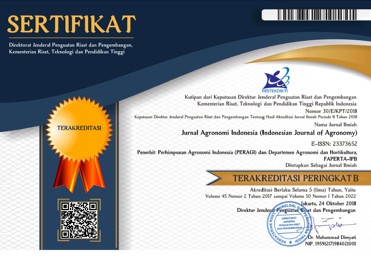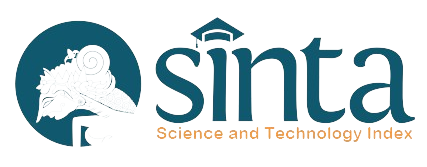Keragaman Vegetasi dan Identifikasi Fungi Mikoriza Arbuskula (FMA) Pada Lahan Bekas Tambang
Abstract
Revegetation of former gold mining land is expected to restore soil fertility. One of the ways to use the gold-mined land as agricultural land is by utilizing the symbioses of arbuscular mycorrhizal fungi (AMF) is expected to accelerate the revegetation process. The aim of the study was to analyze vegetation and AMF exploration in secondary forest land (SF) and former gold mining land (FGML) in the Mandor District . The research stages were conducting the plant identification and the exploration of AMF at the laboratory of Pests and Diseases of Faculty of Agriculture, University of Tanjungpura. The research was conducted for ± 2 months starting from February to April 2018. The parameter of the observation was done by finding the summed dominance ratio (SDR) value, diversity index (DI), the density of spore (DS), relative frequency (RF), the identification of spore, and the analysis of plant root infection. The research finding showed that from the calculation of SDR, there were two dominant plants i.e. Paspalum conjugatum and Melastoma candidum. The calculation result of DI was categorized as ‘moderate’ in three locations of observation. The observation of DS in SF obtained the highest value of 750 spores/100 grams of soil. The total genus Glomus in SF and FGML > 10 years had a higher value than genus Acaulospora. In the three locations of observation, it had been obtained the genus Glomus and Acaulospora, while there was an infection at the observation of staining roots; it was characterized by the existence of arbuscular, vesicles, and external hyphae.












